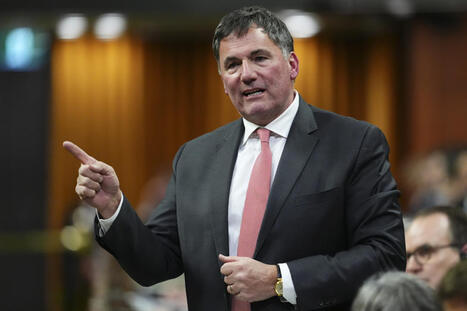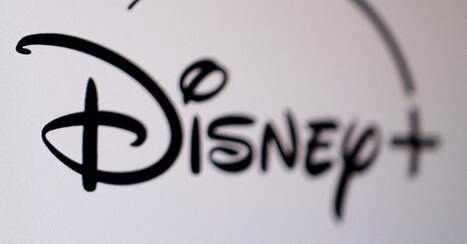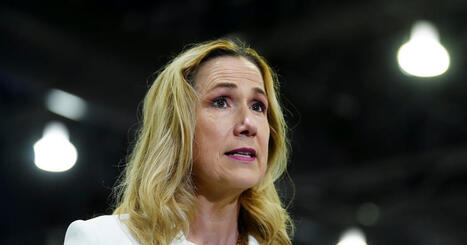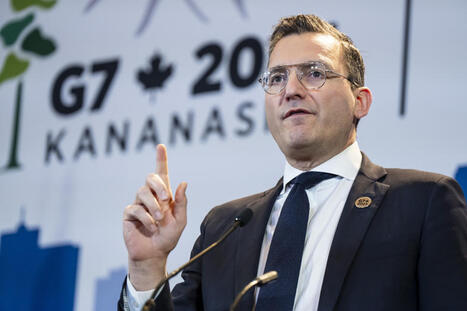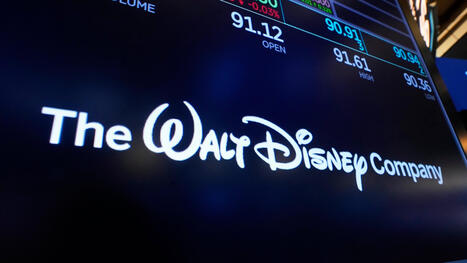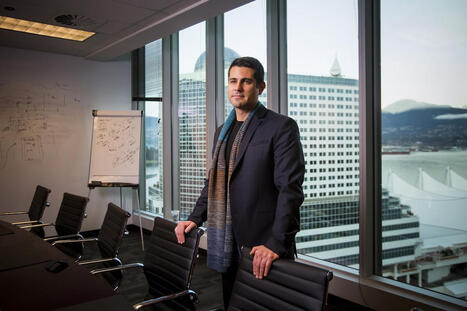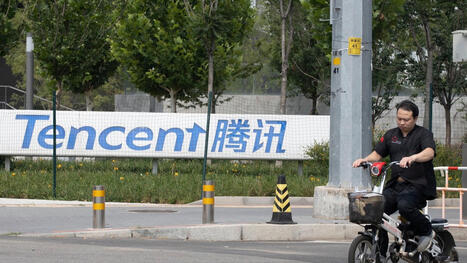 Your new post is loading...
 Your new post is loading...
Coca-Cola said its Chief Executive James Quincey will step down from his role in March and be succeeded by Henrique Braun, the company’s chief operating officer. Quincey, 60 years old, became CEO of the beverage company in 2017 and chairman in 2019. During his tenure at the helm of the Coca-Cola maker, the company added more than 10 billion-dollar, brands including milk brand Fairlife and Topo Chico, Coca-Cola said Wednesday. In the transition, Quincey will become executive chairman. The board plans to nominate Braun, 57, to stand for election as a director at the company’s annual shareholders meeting next year. The outgoing and incoming chief executives both forged similar paths at the soda giant. Both Braun and Quincey joined the company in 1996 in Atlanta. They each held chief operating officer roles before taking the helm at Coke.
Harley-Davidson revamped its leadership, including expanding responsibility for its finance chief and bringing back a company veteran as chief operating officer, firming up the top ranks under new Chief Executive Artie Starrs. The motorcycle maker said Chief Financial Officer Jonathan Root will also take on the role of chief commercial officer, part of a renewed focus on dealer relations and integration with its financial services arm. Bryan Niketh, meanwhile, is returning to Harley, effective Jan. 5, as chief operating officer. He had spent more than 20 years at Harley, including as senior vice president of product and operations, and was most recently president of White River Marine Group, a maker of boats and off-road vehicles. Matt Ryan has been named to the newly created role of chief marketing and technology officer. Most recently, he was chief marketing officer at Boyd Gaming and in the new position, which he began this week, Ryan will oversee Harley’s marketing, digital and technology operations.
Canada posted a small monthly international trade surplus in September, reversing a trend of seven consecutive months of deficits, data showed on Thursday. It registered a marginal trade surplus of $153-million in September, following a $6.43-billion deficit in the prior month, Statistics Canada said. This was the first surplus that Canada has posted since President Donald Trump threatened and later imposed tariffs on critical sectors which choked significant exports to the U.S., Canada’s biggest trading partner. A bulk of the surplus was driven by a 44-per-cent jump in Canada’s trade surplus with the U.S., Statscan’s data showed. The September trade data, which was due in November, was delayed as information for Canadian exports to the U.S. were unavailable due to a 43-day government shutdown in the U.S. Analysts polled by Reuters had forecast the trade deficit at $4.5-billion for September. Canadian fertilizer industry in crosshairs of Trump administration’s price-fixing probe.
Ottawa n’a aucune « indication » que l’administration américaine de Donald Trump s’apprête à déchirer l’Accord Canada–États-Unis–Mexique (ACEUM), bien que le président des États-Unis et ses subalternes aient suggéré qu’ils pourraient songer à un retrait de l’accord de libre-échange. « Nous on croit, basé sur nos conversations avec les Américains, […] que pour le moment, ce n’est pas l’objectif que les Américains ont en tête », dit Dominic LeBlanc, ministre responsable des relations canado-américaines, dans une entrevue de fin d’année avec La Presse Canadienne. Assis dans son bureau de député de la circonscription néo-brunswickoise de Beauséjour situé à quelques pâtés de maisons du Parlement, M. LeBlanc soutient que « les Mexicains aussi » s’attendent à ce que les États-Unis procèdent à la révision de l’entente – l’ACEUM – plutôt que de la déchirer.
Global stocks dipped on Wednesday as crunch time neared for a divided Federal Reserve policy board and earnings results that could test sky-high AI valuations. With most assets frozen in the Fed headlights, attention was grabbed by a sudden slide in the Japanese yen and the dizzy ascent of silver prices, with both hitting record levels. The futures market showed traders were confident the Fed would cut rates by a quarter point to 3.50-3.75% later on Wednesday, pricing it at an 89% probability. Yet they also assumed the guidance was unlikely to suggest more cuts would quickly follow, implying just a 21% chance of a January move. European stocks edged 0.1% lower, as did U.S. futures , , while the dollar dipped against a basket of currencies . Much will depend on how many "dot plot" forecasts from Fed members see one, two or no more cuts next year. Analysts also suspect at least two of the 12 voters could dissent against an easing, putting Chair Jerome Powell in a difficult position.
Insurance broker WTW said on Wednesday it will acquire Newfront in a deal worth up to $1.3 billion, aiming to expand its reach in the U.S. middle-market through the brokerage. The deal will be through a $1.05 billion upfront payment that includes about $900 million in cash and $150 million in equity, with an additional contingent payout of up to $250 million, mainly in equity. Newfront's acquisition will broaden WTW's U.S. middle-market footprint and add scale in sectors such as technology, fintech and life sciences, the company said. "This combination accelerates our technology and specialty strategies, and enables the delivery of an integrated, end-to-end technology platform that will drive growth, enhance operational efficiency and better serve our clients," said Carl Hess, CEO of WTW. Newfront, backed by names such as Goldman Sachs and Index Ventures positions itself as a "modern insurance brokerage for the 21st century", aiming to blend insurance expertise with technology.
Dans une décision attendue, la Banque du Canada maintient son taux directeur inchangé à 2,25 %, en soulignant la croissance économique étonnamment forte en cette fin d’année. Après les récentes données encourageantes sur l’emploi et la croissance économique, la plupart des économistes s’attendaient à ce que la banque centrale ne bouge pas lors de sa dernière décision de l’année. Le taux de chômage a reculé à 6,5 % en novembre et le troisième trimestre s’est conclu sur une croissance économique surprenante de 2,6 %. L’inflation se maintient depuis plusieurs mois autour de la cible de 2 % de la banque centrale. Selon le gouverneur Tiff Macklem, cette résilience s’explique par le fait que l’économie canadienne était en meilleure posture qu’on le pensait avant d’être secouée par le conflit commercial avec les États-Unis. Il prévoit toutefois une croissance faible dans le mois à venir.
Disney said on Tuesday it has nominated former Apple Chief Operating Officer Jeff Williams as an independent director candidate for election at its 2026 annual shareholders' meeting.
The total size of Disney's board will increase to 11 members, effective as of the election of directors at the meeting, if Williams is approved. Williams retired as Apple's COO earlier this year, having held the position since 2015. He was part of the team when the first iPhone was launched in 2007, and also led the Apple Watch project and the company's expansion into health and fitness. His nomination to the entertainment giant's board would bring a second tech executive to the company, following the appointment of Carolyn Everson, the former president of Instacart and a veteran of Meta Platforms, in November 2022.
Kirsten Hillman, Canada’s ambassador to the U.S., is stepping down in the new year as the country’s top diplomat in Washington, according to a statement on Tuesday. “After over eight years in Washington, including six years as Canada’s ambassador to the United States, I have advised Prime Minister Mark Carney that I will be ending my tenure in the United States in the New Year,” Hillman wrote in a lengthy statement. Multiple sources confirmed the resignation to CTV News prior to Hillman’s statement. Her resignation comes as trade talks remain stalled between Canada and the U.S., and as a review of the Canada-U.S.-Mexico Agreement (CUSMA) is set to begin in 2026. While the statement does not provide a specific reason for her departure, Hillman said she will remain “available to Canada’s negotiating team as they navigate the months ahead.”
Transat A.T. Inc. says it steered clear of a strike after reaching a tentative deal with its pilots on Tuesday evening. The travel company, which owns leisure airline Air Transat, had been cancelling flights and winding down operations ahead of the possible work stoppage, affecting thousands of travellers. Neither the company nor the union representing some 750 Air Transat pilots released details of the tentative agreement. Annick Guerard, president and CEO of Transat, said the airline “greatly preferred” to avoid the threat of a strike. “We are aware that this period has created significant uncertainty, and we extend our sincerest apologies to our customers whose flights were disrupted in recent days,” she said in a statement on Tuesday evening. “Our priority now is to quickly restore our operations and deliver on our commitment to provide service that meets our standards.”
Match Group said Hinge founder Justin McLeod is stepping down as chief executive of the unit to launch Overtone, an AI-driven dating app in the early stages of development. McLeod will remain as an adviser to Hinge through March, the company said, adding that McLeod and a team spent much of 2025 developing Overtone and that the company fully supports it. Jackie Jantos, president and chief marketing officer of Hinge, has been named to succeed McLeod as CEO. Match, which owns the dating apps Hinge, Tinder and its namesake dating brand, has been trying to gain traction with younger users and contending with fewer users willing to pay for premium features on dating apps. Jantos joined the company as its chief marketing officer four years ago from password-management firm Dashlane, where she held the position of chief marketing officer after stints at Spotify and Coca-Cola.
Anglo American US$20-billion acquisition of Canada’s Teck Resources Ltd. has been approved by shareholders on both sides of the deal, removing a major hurdle to the transaction getting over the finish line. Investors at London-based Anglo and Vancouver-based Teck met in separate meetings on Tuesday and voted decisively in favour of the transaction. The nil-premium all-stock deal was announced in September. Dating back to 1913, Teck is one of Canada’s biggest and oldest mining companies, with domestic and international operations in copper, zinc, lead and germanium. In British Columbia, Teck operates the Highland Valley copper mine and the Trail smelter. Results from Teck’s meeting showed that 89.7 per cent of the company’s Class B shareholders voted in favour of the deal. Anglo shareholders voted 99.2 per cent in favour. Anglo shareholders also approved the change of the company’s name to Anglo Teck.
La réunion des ministres de l’Industrie, du Numérique et de la Technologie des pays du G7 s’est terminée mardi après-midi avec une déclaration commune en faveur d’un cadre de référence pour l’adoption de l’intelligence artificielle (IA) par les PME. Sous la direction du Canada, ce cadre est défini comme « un guide pratique » devant aider les petites et moyennes entreprises à adopter de manière responsable l’IA. Il « a été accueilli favorablement » par les pays du G7, a soutenu Ottawa au terme de la rencontre qui se tenait à Montréal depuis lundi. Le cadre s’accompagne d’une trousse qui offre des « ressources concrètes » pour soutenir les entreprises dans leur recours à l’IA. Le guide pratique contient aussi des « cas fiables d’utilisation et des stratégies de déploiement pour accélérer la productivité et l’adoption responsable » de cette technologie.
|
Walt Disney is investing US$1 billion in OpenAI and will let the startup use characters from Star Wars, Pixar and Marvel franchises in its Sora AI video and image generator, a crucial deal that could reshape how Hollywood makes content. The partnership announced on Thursday is a pivotal step in Hollywood’s embrace of generative artificial intelligence, despite the industry’s concerns over the impact of AI on creative jobs and intellectual property rights. As part of the agreement, Sora and ChatGPT Images are expected to start generating fan-requested videos using licensed Disney characters in early 2026. The companies will use OpenAI’s models to build new products, tools and customer experiences, including for Disney+ subscribers. The partnership comes months after Hollywood’s premier talent agency sharply criticized the same technology Disney is now embracing.
Altria Group said Chief Executive Billy Gifford will retire in May and named its current chief financial officer Sal Mancuso as Gifford’s replacement. Gifford, who has been CEO since 2020, will serve as a consultant to the company following his retirement through at least the end of 2026. Mancuso has been with the company since 1990 and served as CFO since 2020. His compensation as CEO is yet to be determined. Heather Newman, Altria’s chief strategy and growth officer since March 2022, will become the company’s new CFO, effective May 14. As part of the compensation tied to her appointment, Newman received a stock grant valued at $1.5 million that will vest in 2030.
The Competition Bureau has won a court order to obtain records from Well Health Technologies Corp., a consolidator of medical clinics and health-technology providers, as part of an investigation into some of the company’s recent acquisitions. The investigation, which was first reported in The Globe and Mail last month, kicked off after a series of acquisitions that involved Well Health and Healwell AI Inc., which had an initial public offering in early 2021 under the name MCI Onehealth Technologies Inc. On April 1, Healwell bought Orion Health Holdings Ltd., a New-Zealand-based global provider of medical-record software and, at the same time, Well Health acquired a controlling interest in Healwell. The bureau says its investigation is looking into the implications of the acquisitions on users, such as costs or the ability of different software systems to work with each other. The bureau is also concerned about whether the acquisitions raised market barriers for new health-technology companies.
Le déficit commercial des États-Unis a continué à se réduire au mois de septembre, pour atteindre son niveau le plus bas depuis 2020 grâce à une hausse plus marquée des exportations que des importations, selon les données publiées jeudi par le département du Commerce. Au mois de septembre, la balance commerciale des biens et services a vu son déficit s’établir à 52,8 milliards de dollars, soit un recul de 10,9 % par rapport au mois précédent, lui-même déjà marqué par un fort recul. C’est également mieux qu’anticipé par les analystes qui tablaient plutôt sur un creusement du déficit à 62 milliards de dollars, selon le consensus publié par MarketWatch. Les données, initialement prévues pour publication début novembre, ont été rendues publiques avec près d’un mois de retard du fait du blocage budgétaire (« shutdown ») record qui a paralysé l’administration américaine pendant 43 jours.
The Trump administration will hold the government's first sale of oil and gas drilling rights in the Gulf of Mexico since 2023 on Wednesday, a key test of industry appetite for offshore acreage at a time when the United States is seeking to unleash more domestic fossil fuel production. The auction is the first of 30 mandated by U.S. President Donald Trump's tax cut and spending bill, which he signed into law in July. His administration's plans for offshore leasing are a significant departure from that of his predecessor, President Joe Biden, which had planned for a historically small number of oil and gas auctions as part of an effort to move away from fossil fuels and address climate change. The U.S. Bureau of Ocean Energy Management offered 81.2 million acres in the Gulf at a royalty rate of 12.5%, the lowest permitted by Trump's new tax law. Previously, as mandated by Biden's 2022 Inflation Reduction Act, oil companies were required to pay a minimum of 16.66% in royalties to the U.S. Treasury, states and other federal funds.
Elliott Investment Management has lifted its stake in Toyota Industries to 5.01%, further increasing pressure on automotive giant Toyota Motor, which plans to buy out the forklift manufacturer, a key group firm. The U.S. activist investor, which spent 268 billion yen ($1.7 billion) on acquiring the stake, said in a Japanese regulatory filing on Wednesday that the holding was acquired for investment purposes and potentially making important shareholder proposals. Last month, Elliott said it had a significant stake and criticised the deal as undervaluing Toyota Industries, lacking transparency and falling short of proper governance practices. Other global investors have also asked for more disclosure of a deal that would strengthen the influence of the founding Toyoda family within the group. The transaction is being closely watched as Japan's regulators and the government push for improved corporate governance.
Chevron CEO Mike Wirth said on Tuesday he is in discussions with the board of directors about when he will step down from the U.S. oil producer. "I've been doing this for eight years, and as soon as we've got the next person ready to go, my job is to get out of the way," Wirth said during an onstage interview at a Wall Street Journal conference. The board waived the mandatory retirement age for Wirth in 2023, who said at the time he wanted to make more progress on increasing shareholder returns and lowering emissions. Wirth, who became CEO in 2018, is 65 years old according to Chevron's website. "I'm not going to bank on many more years after year 10," Wirth said on Tuesday.
Sustainability is at a crossroads. That was the headline finding of a report earlier this year by GlobeScan, ERM and Volans, who surveyed hundreds of global experts in business, civil society, academia, media and government. More than half of respondents (56%) said that the current approach to sustainability “should be radically revised”, while only 6% said it “works well as it is and we should continue to pursue it”. Others expressed fears that companies are abandoning high-profile commitments in the face of political turmoil. How should individual businesses respond? In my opinion they should use this as an opportunity for a reset – a substantial one. I suggest five key elements.
Paramount Skydance says the Chinese gaming and social media giant Tencent Holdings withdrew from its bid to buy Warner Bros Discovery to avert a possible national security review. Paramount’s revised filing with the U.S. Securities and Exchange Commission of its takeover bid said the Chinese company had dropped its US$1 billion financing commitment out of concern, since it would be a “non-U.S. equity financing source,” that its bid might be subject to a review by the Committee on Foreign Investment in the United States, known as CFIUS. That was even though approval by CFIUS or by the Federal Communications Commission was not a condition of the bid. The SEC filing, dated Monday, said that foreign sovereign wealth funds of Saudi Arabia, Abu Dhabi and Qatar, which are providing US$24 billion for Paramount’s bid, had agreed to give up a right to participate in Warner Bros’ management to avoid the additional scrutiny.
The megadeal is back and so is Wall Street’s immense appetite for debt. Paramount’s hostile bid for Warner Bros. Discovery this week, the leveraged buyout of gaming company Electronic Arts earlier this year and other recent debt-laden transactions have all been possible thanks to a spike in lending by banks and even some private-credit funds. Big-ticket mergers and acquisitions, or those valued at $10 billion or more, hit a record dollar amount this year, according to Dealogic. Much of the price tag on those deals gets paid for with debt. Debt-heavy deals mean large paydays for shareholders but also more risks for bond investors when credit markets are showing signs of overexuberance. And would-be acquirers have more choices than ever: The corporate-bond, syndicated-loan and private-credit markets are all whirring at the same time.
Elon Musk’s SpaceX is looking to raise more than US$25-billion through an initial public offering in 2026, a move that could boost the rocket-maker’s valuation to over US$1-trillion, a person familiar with the matter told Reuters on Tuesday. The company’s move towards a public listing, which could rank among the largest global IPOs, has been largely driven by the rapid expansion of its Starlink satellite internet business, including plans for direct-to-mobile service and progress in its Starship rocket program for moon and Mars missions. SpaceX has started discussions with banks about launching the offering around June or July, the person said, requesting anonymity to discuss confidential information. The company did not immediately respond to a Reuters request for comment. Talks over a listing plan are unfolding against the backdrop of a resurgence in the IPO market in 2025 after a three-year dry spell.
Le commerce mondial devrait atteindre un nouveau pic en 2025, mais plusieurs facteurs rendent les perspectives pour 2026 plus mesurées, a annoncé l’ONU mardi. « Si les projections se confirment, le commerce mondial dépassera pour la première fois les 35 000 milliards de dollars cette année, soit une hausse d’environ 2200 milliards de dollars (environ 7 %) par rapport à 2024 », a indiqué l’ONU Commerce et Développement (CNUCED) dans sa dernière évaluation. Selon ces projections, le commerce des biens devrait représenter environ 1500 milliards de dollars d’augmentation, tandis que celui des services devrait croître d’environ 750 milliards de dollars. Toutefois, selon la CNUCED, « la dynamique devrait s’affaiblir en 2026 ».
|




 Your new post is loading...
Your new post is loading...




